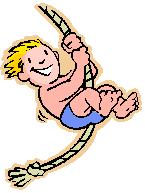
An Interview with Rhiannon Frater
Rhiannon is a successful independent horror writer who found her way to Tor through an interesting confluence of events. She was kind enough to take time out of her weekend and sit down for an interview.
Joshua Essoe: How long did it take you to get the steam going in your career? Did you ever feel like giving up?
Rhiannon Frater: I’ve been writing since I was a little girl, so I guess it took all my life to get to the point where I am presently. The journey wasn’t just about getting a big break and a publishing deal, but also developing my voice and finding my genre. For a long time I thought I was going to be a mystery writer like Agatha Christie. I was rather surprised when horror ended up being my niche.
JE: Did you ever consider giving up?
RF: I did for about nine years. My husband helped me get back on track. Being an author is a very tough business. You have to have a thick skin, a good support system, and a lot of ambition along with the talent to write, of course.
JE: Of course. Take that one as a given and work on the rest! Who did you learn from, or are you self-taught? Did you take workshops to hone your craft?
I read a lot of books and wrote a lot of books to discover my writing voice. I have also learned a lot from reading the editing notes from my editor at Tor and my indie editor. I also learned a lot about plot structure and character development from being an avid fan of Alfred Hitchcock and Joss Whedon. I’ve been told many times that I write cinematically. Readers tell me that when they finish one of my books they feel like they just watched a movie.
JE: You started indie, you put your books out yourself and collected a following with your As the World Dies Trilogy. Eventually Tor took notice. What was the process you went through to produce your books? Did you hire professional editing, cover art, and book design?
RF: As The World Dies started out as an online serial. It gained a huge following, much to my surprise. The original fans were the ones who wanted to have the series published so they could have physical copies on their bookshelves. It was with their encouragement that I tried very hard to find an agent or a publisher who would be interested in my zombie epic. Instead, I was met with rejection. My husband approached me about self-publishing utilizing the new media. I was reluctant at first, but after a lot of research we felt it was the best way to go about it. A friend did the cover art, I formatted the interior, my husband did the layout of the full cover, and some friends helped with the editing. This was back in 2008 so there weren’t the resources available then that there are now.
I’ve learned so much since those early days. I now have an editor who works with Permuted Press edit my indie novels, I have a professional formatter, and my cover artists are top notch.
JE: I loved the updated covers that you and Tor released. How did things change when you signed with Tor? What are the pros and cons of Indy vs. trad publishing in your experience?
RF: Well, the purchase of the trilogy allowed me to quit my day job and give the full-time writing gig a shot, but what keeps me writing full-time are my self-published novels. I have only seen one royalty statement since the books were published by Tor, which is the norm with big publishers. It’s my monthly royalty payments from Kindle, Nook, Kobo, Audiobook Creation Exchange, and Createspace (trade paperbacks) that pays my bills and keeps me happily writing at home. So even though the bigger lump payments come from the big publisher, the more consistent monthly earnings are from my indie works.
Creatively, the indie side of things is much more in my court. I can write a very long novel with no worries of a word count restriction. I can write whatever I want to write next and not worry about writing a synopsis, summary, etc., to pitch to my editor. The interior design, cover art, and layout are things I have full control over with my indie novels. Tor has been really kind with taking my suggestions for the covers of the As The World Dies Trilogy, but they have final say.
Both publishing paths have pros and cons. I happen to enjoy doing both, that’s why I’m a hybrid author.
JE: You’ve achieved what many indy writers strive for, that big publisher staring you in the face and telling you you’re good enough. First of all, it must have felt amazing. Second, do you think it’s necessary? What do you think of the gatekeepers and what is your advice for new authors trying to decide what route to take, and what steps along that route?
RF: In my case it has definitely been worth it to traditionally publish. The initial advance money gave me the freedom to pursue a full-time career. I have also enjoyed the editing process with my editor at Tor. I’ve learned a lot from her. Because the books were published by Tor, Publishers Weekly reviewed The First Days and it received a Starred Review. Also, many people who have never heard of me gained access to my books because they were on the shelves of local bookstores.
What’s nice about self-publishing is that the books that Tor may not want can still find their way onto the e-readers and bookshelves of readers. Big publishers have to buy what they feel will sell to a wide audience. I may come up with an idea that they think is awesome, but won’t sell. Those books don’t die in the back of a writer’s closet anymore.
The best advice I can give up-and-coming writers is in the F.A.Q. on my website.
JE: How big a part is the social aspect to the success of a writer’s career? Did you go to cons, workshops, seminars, meet particular people, pitch, plead or beg?
RF: Everyone’s path to success in writing is different. I know of people who have taken every writing class offered in their area, traveled to workshops, seminars, etc…. They even know a lot of writers, agents, and publishers from constantly networking, but they don’t have a book deal. There are also people who write their first book, send it to an agent, and have a seven figure deal two weeks later. There is no set path. There is no magic key.
In my case I self-published, a producer saw the cover of my second book and thought the character looked like his wife, he bought it, loved it, optioned the series, and the next thing I know I have an entertainment lawyer referring me to a literary agent in New York. I had an agent by Thanksgiving, she pitched in January, and I had a deal with Tor in early March.
JE: That’s amazing. Your latest, Pretty When She Kills, came out last month. How is it being received, and what is your next big project?
RF: I actually returned to the old vampires. My vampires are scary and kill people, but holy relics and sunlight are deadly. The series has been gaining quite a fervent following since True Blood gave us back the scary bloodsuckers. The reviews have been really awesome and I hope the third book will bring a fitting end to the trilogy.
I’m wrapping up my latest project for Tor right now called Dead Spots. It’s a really bizarre horror novel that I absolutely love. Once I turn that in, I’m probably going to return to the Pretty When She Dies universe and write the last book in the trilogy, along with a side novella.
JE: What is Dead Spots going to be about?
RF: It’s a horror novel, obviously. Not vampires, zombies, or anything like that, but I’ll let Tor describe it.
JE: Sounds intriguing. I love the title. Now, for the serious. Complete this sentence: “Like I said…”
RF: …kill all the things.



